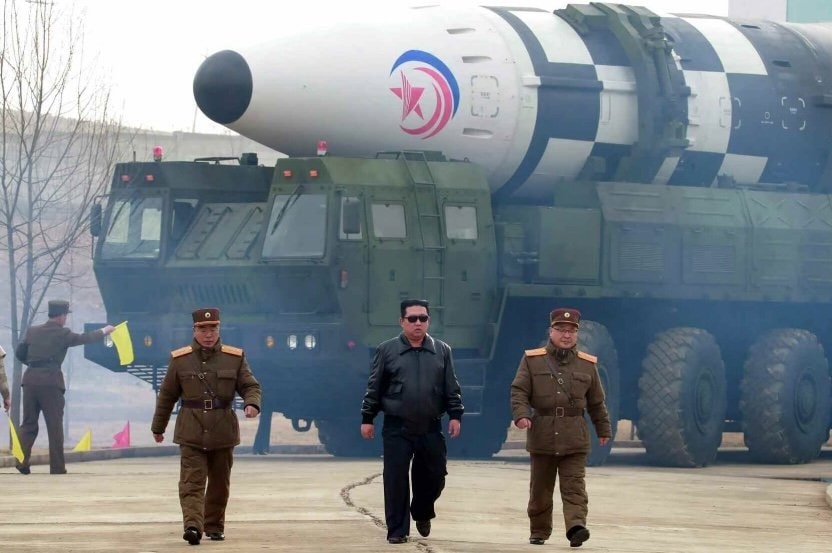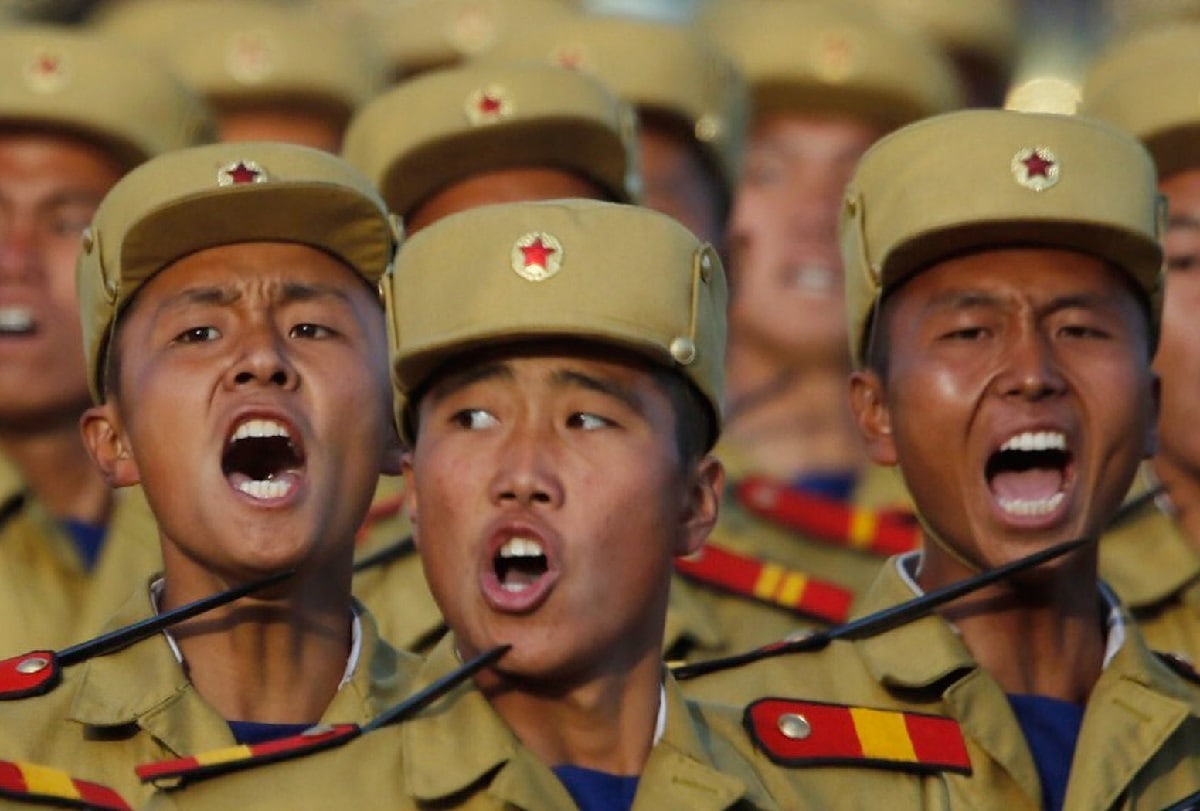North Korea’s latest ballistic missile launch – its first over Japan since 2017 – is another escalation in provocations and reflects the regime’s continued defiance of UN requirements that it abandon its nuclear and missile programs. Rather than intimidating the United States and its allies, Pyongyang’s action will only buttress ongoing deterrence initiatives.
The missile was most likely the nuclear-capable Hwasong-12 intermediate-range ballistic missile, which can reach American bases on Guam. This would be the fifth successful Hwasong-12 flights, including two previous overflights of Japan in 2017.
After the collapse of the U.S.-North Korea summit in 2019, Pyongyang resumed missile launches at an exceptionally high rate. This was the 39th North Korean ballistic missile launch this year, all of which violate UN Security Council resolutions. Since January, Pyongyang has ratcheted up its missile provocations by launching intermediate-range and intercontinental-range missiles.
Experts and officials debate the intended “signal” and the timing of North Korean nuclear and missile events, overlooking the fact that they’re part of a decades-long effort to develop a nuclear war-fighting capability. Some experts describe North Korean provocations as responses to U.S. or South Korean actions, thus mitigating Pyongyang’s violations of UN resolutions and threatening behavior.
North Korean missile launches can serve several concurrent objectives – testing new weapons systems, forming a part of routine military training, exercising the war plan Kim Jong-un implemented after assuming power a decade ago, sending a message of resolve to the North Korean populace, and serving as an effort to intimidate Washington and Seoul.
Pyongyang’s actions, coupled with statements by its senior leadership, affirm enduring regime themes of resistance to outside pressure, rejection of denuclearization, and dismissal of offers of economic benefits. They also affirm that its nuclear weapons are for both deterrence and offensive purposes, including threats of preemptive nuclear attack.
Pyongyang may be inching toward conducting its 7th nuclear test, an ICBM overflight of Japan, or demonstrating a multiple-warhead ICBM capability. Any of these would significantly escalate regional tensions. However, the regime will likely wait until after China’s mid-October communist party congress so as to not anger its ally.
China and Russia have repeatedly shown themselves to be part of the problem rather than part of the solution. Both countries prevented UN Security Council action, dismissed evidence of North Korean violations, turned a blind eye to violations committed by Chinese and Russian entities, and called for U.S. and South Korean restraint after North Korean provocations and deadly attacks.
Previous North Korean missile overflights of Japan triggered Tokyo to implement and accelerate extensive ballistic missile defense programs. This most recent flight could be a catalyst for Tokyo to prioritize construction of additional Aegis-capable ships or even to rethink its cancellation of the Aegis Ashore program. The North Korea missile launch will affirm growing Japanese public support for increased defense spending and counter-strike capabilities against North Korean missiles.
Some experts advocate abandoning efforts at North Korean denuclearization and instead seek arms-control agreements. However, North Korean denuclearization is not only a U.S. diplomatic proposal, but is required under 11 UN resolutions as well as U.S. law (the Asia Reassurance Initiative Act).
To abandon denuclearization as the final objective would also undermine the Non-Proliferation Treaty and decades of U.S. non-proliferation policy. Moreover, the first four of eight failed international nuclear agreements with North Korea were arms-control attempts to cap the regime’s nuclear program.
Pyongyang’s latest provocation will only strengthen South Korea’s resolve to defend its sovereignty despite intimidation from North Korea and China. Since the inauguration of President Yoon Suk Yeol, South Korea and the US have responded to North Korean provocations with displays of military strength, either missile launches or combined air force bombing drills. Washington has pledged to resume rotational deployments of strategic assets (bombers, dual-capable aircraft, or aircraft carriers), which have been curtailed since 2018.
Though stymied at the U.N. by Chinese and Russian obstructionism, the United States can and should lead an international effort to hold Pyongyang and other violators accountable. Washington can use existing authorities to take greater punitive action against violators. However, successive presidential administrations have refrained from fully enforcing U.S. laws, including against Chinese banks committing money-laundering crimes in the U.S. financial system.
Pyongyang continues to reject all allied requests for negotiations on denuclearization, arms control, tension reduction, or confidence-building measures. As such, the United States, South Korea, and Japan must take appropriate measures to protect their national security by augmenting and improving their deterrent and defense capabilities.

North Korea wheeling out new Hwasong-17 ICBM. Image Credit: Creative Commons.
The U.S. should improve the missile defense of the American homeland and augment regional ballistic missile defenses, complete modernization programs for U.S. nuclear forces, and affirm its extended deterrence guarantee to South Korea and Japan. For their part, South Korea and Japan should continue to augment their missile defenses, enhance counter-strike capabilities, and take steps to improve bilateral security cooperation with each other as well as the United States and other regional security partners.
Bruce Klingner specializes in Korean and Japanese affairs as the senior research fellow for Northeast Asia at The Heritage Foundation’s Asian Studies Center. Klingner’s analysis and writing about North Korea, South Korea and Japan, as well as related issues, are informed by his 20 years of service at the Central Intelligence Agency and the Defense Intelligence Agency. Klingner, who joined Heritage in 2007, has testified before the House Foreign Affairs Committee, the Senate Select Committee on Intelligence and the House Permanent Select Committee on Intelligence.

